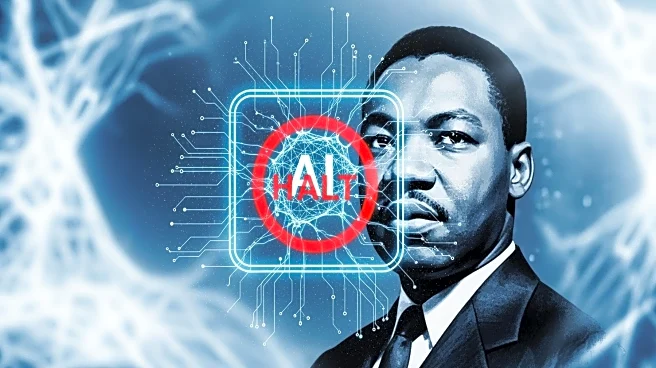What's Happening?
OpenAI has decided to stop its AI application, Sora, from creating deepfake videos of Dr. Martin Luther King Jr. This decision comes after a request from King's estate, which expressed concerns over the disrespectful
nature of such content. The AI-generated videos had gone viral, depicting historical figures, including Dr. King, in altered and often offensive scenarios. OpenAI acknowledged the issue and stated it would pause the creation of such videos while strengthening its guidelines for depicting historical figures. Despite this, the app continues to allow the creation of videos featuring other prominent individuals, which has sparked controversy.
Why It's Important?
The decision by OpenAI highlights the ethical challenges posed by deepfake technology, particularly in relation to historical figures. The ability to manipulate videos to show individuals in scenarios they never participated in raises concerns about misinformation and the potential rewriting of history. This move by OpenAI is significant as it addresses the balance between free speech and respect for historical figures. The halt on Dr. King's deepfakes could set a precedent for how AI companies handle similar situations, impacting how technology is used in media and public discourse.
What's Next?
OpenAI's decision may prompt other AI companies to reevaluate their policies regarding the creation of deepfake content. There could be increased pressure from public figures and their estates to control the use of their likenesses in AI-generated media. Additionally, this situation may lead to discussions on regulatory measures to prevent misuse of deepfake technology, ensuring ethical standards are maintained in digital content creation.
Beyond the Headlines
The ethical implications of deepfake technology extend beyond individual cases, touching on broader societal issues such as the erosion of trust in media and the potential for historical revisionism. As AI technology continues to advance, the need for robust ethical guidelines and legal frameworks becomes increasingly critical to prevent misuse and protect the integrity of historical narratives.











